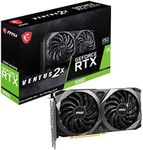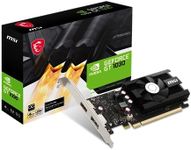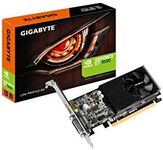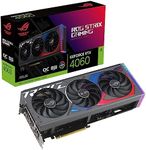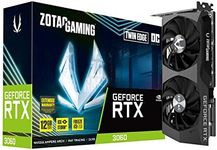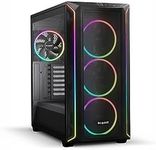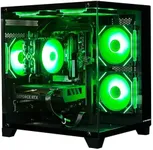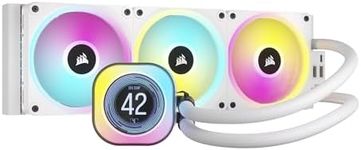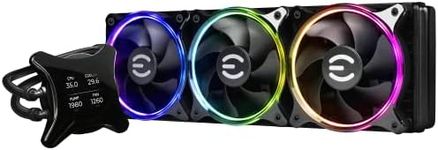Buying Guide for the Best PC Parts
Choosing the right PC parts can be a daunting task, but with the right knowledge, you can build a computer that perfectly suits your needs. The key is to understand what each component does and how it impacts the overall performance of your system. By focusing on your specific requirements, such as gaming, content creation, or general use, you can make informed decisions about which parts to select. Here are the key specifications to consider when picking PC parts and how to navigate them.CPU (Central Processing Unit)The CPU is the brain of your computer, responsible for executing instructions and processing data. It's important because it affects the overall speed and performance of your system. CPUs are typically divided into segments based on core count and clock speed. For general use, a dual-core or quad-core CPU with moderate clock speed is sufficient. For gaming, a quad-core or hexa-core CPU with higher clock speeds is ideal. For content creation or heavy multitasking, an octa-core or higher CPU with high clock speeds is recommended. Choose a CPU based on the tasks you plan to perform most frequently.
GPU (Graphics Processing Unit)The GPU handles rendering images, videos, and animations, making it crucial for gaming, video editing, and graphic design. GPUs are categorized by their processing power and memory. For general use, an integrated GPU or a low-end dedicated GPU is adequate. For gaming, a mid-range to high-end GPU with at least 4GB of VRAM is necessary. For professional content creation, a high-end GPU with 8GB or more VRAM is ideal. Select a GPU based on the graphical demands of your applications.
RAM (Random Access Memory)RAM is the short-term memory of your computer, allowing it to store and quickly access data for running applications. It's important because it affects multitasking and the speed at which programs run. RAM is measured in gigabytes (GB). For general use, 8GB of RAM is usually sufficient. For gaming, 16GB is recommended to ensure smooth performance. For content creation or heavy multitasking, 32GB or more may be necessary. Choose the amount of RAM based on the complexity and number of applications you use simultaneously.
Storage (HDD/SSD)Storage is where your computer saves all its data, including the operating system, applications, and files. It's important because it affects the speed of data access and overall system responsiveness. Storage comes in two main types: HDD (Hard Disk Drive) and SSD (Solid State Drive). HDDs offer larger capacities at lower prices but are slower. SSDs are faster and more reliable but cost more per gigabyte. For general use, a combination of a smaller SSD for the operating system and a larger HDD for files is effective. For gaming and content creation, a larger SSD is preferable for faster load times and better performance. Choose storage based on your need for speed and capacity.
MotherboardThe motherboard is the main circuit board that connects all the components of your computer. It's important because it determines the compatibility and expandability of your system. Motherboards are categorized by their form factor (size) and chipset (features). For general use, a standard ATX motherboard with basic features is sufficient. For gaming, a motherboard with additional PCIe slots and better cooling options is ideal. For content creation, a motherboard with more RAM slots and high-speed connectivity options is recommended. Choose a motherboard based on the components you plan to use and any future upgrades.
Power Supply Unit (PSU)The PSU provides power to all the components of your computer. It's important because it affects the stability and reliability of your system. PSUs are rated by their wattage and efficiency. For general use, a 400-500W PSU with an 80+ efficiency rating is usually sufficient. For gaming, a 500-750W PSU is recommended to support high-performance components. For content creation or systems with multiple GPUs, a 750W or higher PSU is necessary. Choose a PSU based on the power requirements of your components and future upgrades.
Cooling SystemThe cooling system keeps your computer's components at safe operating temperatures. It's important because it affects the longevity and performance of your system. Cooling systems include air coolers and liquid coolers. For general use, a standard air cooler is usually sufficient. For gaming, a high-performance air cooler or a basic liquid cooler is recommended to handle the extra heat. For content creation or overclocking, a high-end liquid cooling system is ideal. Choose a cooling system based on the heat output of your components and your performance needs.
CaseThe case houses all your computer components and affects airflow, cooling, and aesthetics. It's important because it impacts the overall build quality and ease of assembly. Cases come in various sizes, including mini-ITX, micro-ATX, and ATX. For general use, a mid-tower case with good airflow is sufficient. For gaming, a case with additional cooling options and space for larger components is ideal. For content creation, a full-tower case with ample room for expansion and high-end cooling is recommended. Choose a case based on the size of your components and your aesthetic preferences.

